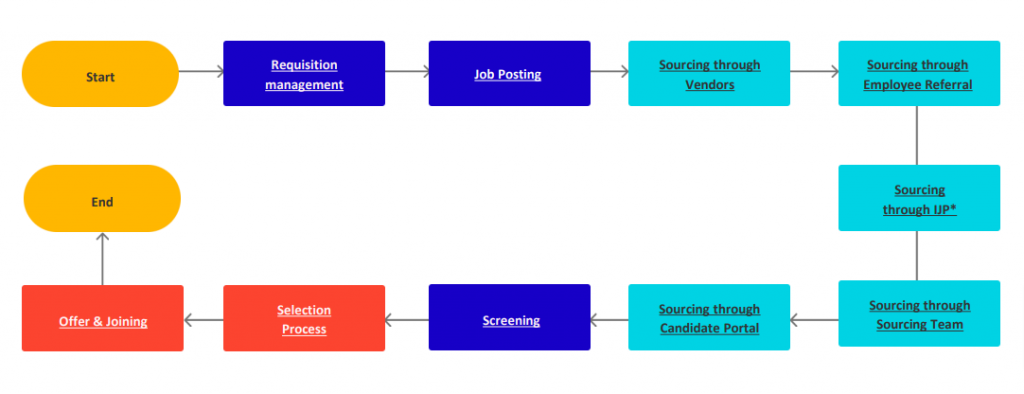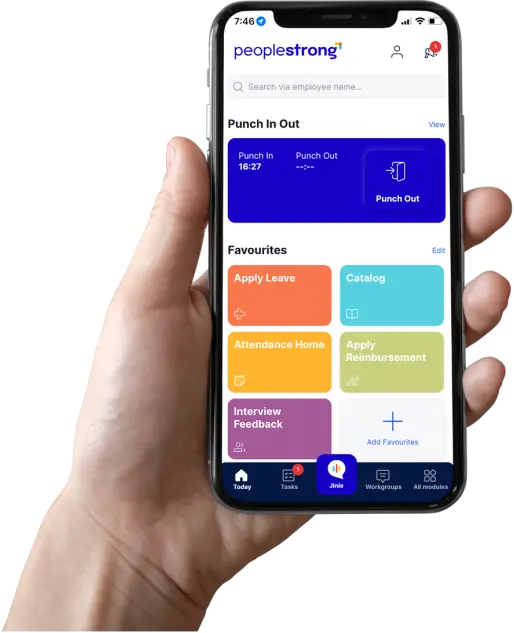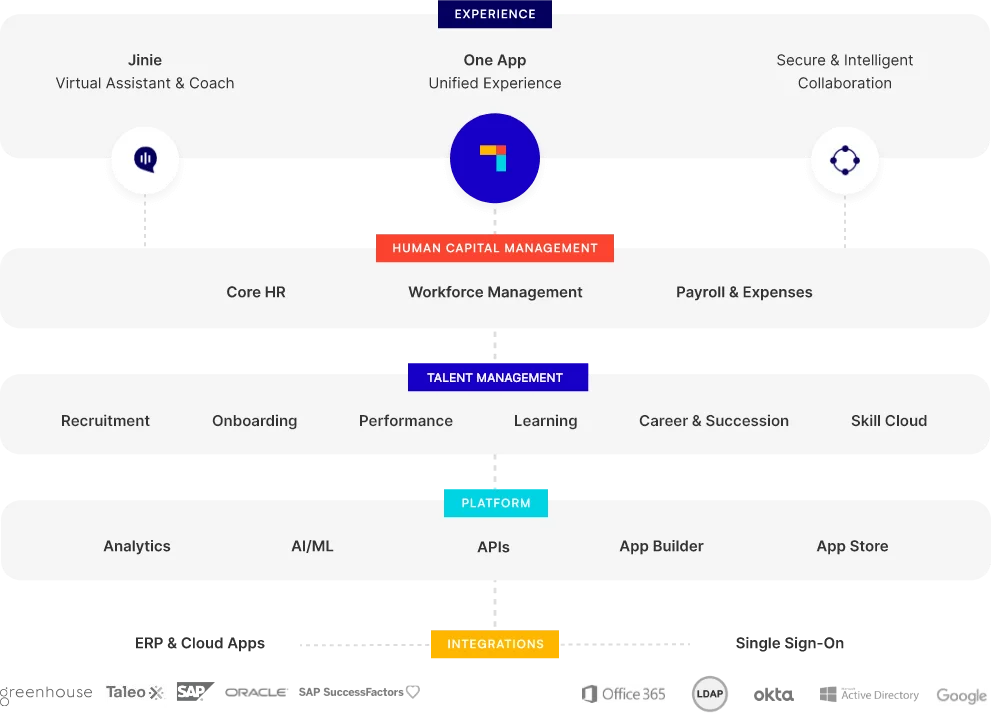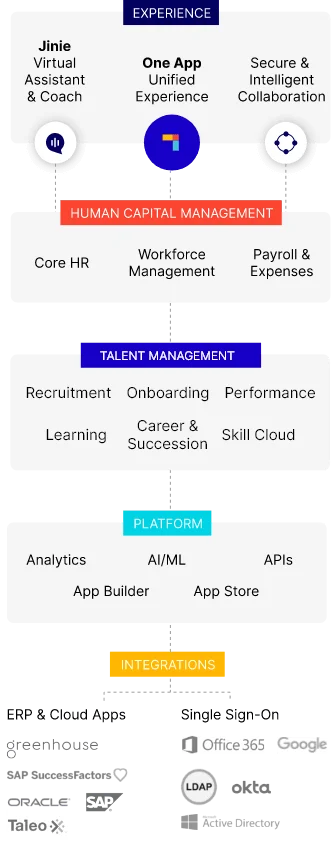Recruitment is both the backbone of organisations and a demanding process. Yet, the real pain point comes when recruitment falls short of expectations.
A striking insight from a LinkedIn report reveals that companies with strong employer brands can slash their cost per hire by up to 50%. This indicates that it directly impacts the bottom line.
Furthermore, regional recruitment challenges, such as limited access to skilled professionals, cultural mismatches, and logistical hurdles, often tighten the talent pool. This magnifies the need for precision and excellence right from the start.
This article will equip you with a comprehensive manual that incorporates global best practices and leverages technology to enhance your recruitment process.
Challenges of an Effective Recruitment Process

An efficient recruitment process goes beyond merely filling vacancies. The stakes are particularly high in regional settings, where nuances such as cultural fit, talent availability, and regulatory frameworks play pivotal roles.
Let’s dive into regional recruitment’s importance and the potential loopholes and challenges.
1. Cultural Fit and Alignment
The Middle East’s cultural diversity demands that you prioritise cultural alignment during the recruitment process. With the online recruitment market in the region growing at a 9.4% CAGR, reaching US$ 86,072.00 million by 2028, it’s clear that digital platforms offer powerful tools to align candidates’ values with your company culture.
Utilise an AI-powered talent acquisition platform like PeopleStrong to streamline this alignment.
The platform enables employers to evaluate candidates based on their cultural compatibility with the organisation. This evaluation is made possible through advanced analytics and machine learning algorithms that analyse candidate responses, past experiences, and social media footprints to ensure alignment with the company’s core values.
2. Talent Scarcity
The region’s booming sectors, like technology and BFSI, signal a tight talent market. This environment makes it crucial for you to devise strategic recruitment initiatives to ensure employee satisfaction and loyalty.
3. Regulatory Considerations
The Middle East’s emphasis on workforce localisation introduces unique regulatory challenges. For instance, Saudi Arabia’s “Saudization” policy mandates the employment of Saudi nationals in certain sectors, aiming to reduce unemployment among locals.
This policy requires companies to maintain a certain percentage of Saudi nationals within their workforce. You need to stay ahead by ensuring your recruitment practices comply with relevant local laws and contribute positively to regional talent development.
4. Economic Diversification and Sector-Specific Skill Gaps
As Middle Eastern countries strive to diversify their economies beyond oil, sectors like technology, renewable energy, and tourism are expanding rapidly. This rapid growth creates a pressing need for skills that the current workforce may lack.
5. High Expatriate Turnover Rates
The Middle East has a high reliance on expatriate workers in various industries. While this brings in diverse skills and experiences, it also leads to challenges with high turnover rates, as many expatriates may view their positions as temporary, leading to a lack of long-term commitment.
Follow These 10 Steps to Enhance Your Hiring Approach
Here are concrete steps to refine your recruitment strategies, ensuring they resonate with local talent and capitalise on the latest technological advancements:
1. Optimise Job Descriptions and Posting as per Regional Norms
To optimise your job descriptions and postings in line with regional norms.
- Start by tailoring the content to meet the expectations of the local job market. For example, if you’re hiring in Dubai’s vibrant tech scene, highlight the need for digital transformation skills and a proactive approach to tech advancements.
- Use local languages or dialects to ensure the message resonates deeply with the potential candidates.

Here’s a template created by PeopleStrong, designed with insights from consultations with over 500+ talent leaders. It outlines the comprehensive job posting process for teams aiming to recruit new members.
While posting a job may seem straightforward, this template demonstrates the importance of diligence in minimising errors and identifying the ideal candidate.
2. Leverage Local Talent Pipelines
Build strong connections with educational institutions and professional associations across the Middle East to tap into a vibrant pool of talent.
For example, collaborate with universities like King Abdulaziz University or the American University of Beirut to access graduates equipped with cutting-edge skills and fresh perspectives.
Partner with regional professional bodies such as the Middle East Association for Managing Human Resources (MEAHRM) to reach experienced professionals looking for new challenges.
This strategy not only enriches your talent pipeline with diverse candidates but also strengthens your organisation’s presence and reputation in the local job market.
3. Implement Applicant Tracking Systems (ATS) with Regional Capabilities
Opt for an Recruitment Software designed with the Middle East in mind. Ensure it supports Arabic and other regional languages, adheres to Middle East-specific data protection laws, and seamlessly integrates with popular local job boards and social media platforms like Bayt and LinkedIn.
This targeted approach simplifies your recruitment process, making it more accessible to a broader spectrum of candidates and ensuring compliance with local regulations. By using an ATS that caters specifically to the regional nuances, you can:
- Streamline your hiring process
- Enhance candidate engagement
- Solidify your standing as an employer who values local insights and compliance
4. Enhance Recruitment with Employee Referral Programs

Capitalising on employee referral programs can significantly boost your recruitment efforts in the Middle East. Such programs leverage the networks of your current workforce, often leading to faster hires and candidates who are a better fit for your company culture.
Here’s how to make the most of employee referrals:
- Incentivise Participation: Offer rewards or recognition to employees who refer candidates who are hired and successfully integrated into the team. This could include monetary bonuses, extra vacation days, or public acknowledgement within the company.
- Simplify the Referral Process: Provide a straightforward and accessible referral form or platform to make it easy for your employees to refer potential candidates. Ensure that the process is well-communicated and that employees understand what makes a strong referral.
- Track and Analyse Referral Success: Keep records of the referrals received, the conversion rate to hires, and the performance of referred employees. This data can help you continuously improve your referral program and highlight its value to the company.
5. Adopt Flexible Work Models Tailored to Regional Preferences
Recognise the growing preference for flexible work arrangements in the Middle East. In your job postings, illustrate your commitment by offering remote, part-time, or flexible-hour options.
An example could be adapting roles within your tech department to be fully remote, catering to the skilled diaspora seeking to contribute from abroad. This approach widens your talent pool and demonstrates a modern, inclusive workplace culture that values work-life balance. And it would surely attract the top regional talent.
6. Establish Strategic Partnerships for Talent Sourcing

Engage directly with the talent pool in the Middle East by organising hackathons and workshops tailored to the region’s booming tech industry. For example, partner with leading tech universities in Dubai or Riyadh to host coding challenges that solve local issues.
This not only showcases your company as a thought leader but also draws in individuals passionate about making a tangible impact. Similarly, initiating joint research projects with regional institutions can help you tap into fresh perspectives. It also fosters a relationship with potential candidates who are already aligned with your industry’s future needs.
7. Personalise Candidate Experience
Tailor your recruitment communications to match the Middle East’s cultural norms and expectations.
- When scheduling interviews, consider regional working hours and holidays to show respect for the candidate’s time.
- Spotlight the ease of application via WhatsApp, a preferred communication platform in the Middle East, to enhance accessibility and prompt quicker responses.
- Personalising interview scheduling emails with a greeting in Arabic can also make a significant difference, making candidates feel valued and understood from the outset.
8. Empower Your Hiring Process with AI: Leveraging Resume Parsing and Matching Technologies

Integrating AI-based solutions, such as resume parsers and search & match engines, can significantly enhance the efficiency and speed of your screening process. These technologies automate the parsing and categorisation of candidate information, swiftly matching qualifications with job requirements.
This not only reduces the manual workload on HR teams but also ensures a more accurate fit between job vacancies and potential candidates.
However, when implementing AI-based solutions, beware of these key factors:
- Avoid overreliance on AI. Use these tools to enhance decision-making, but remember the invaluable role of human intuition and understanding in evaluating a candidate’s fit beyond just qualifications.
- Ensure your AI tools comply with regional and international data protection regulations. Safeguard candidate information to maintain trust and legal compliance.
- AI models require ongoing training to stay effective. Regularly update the system with new data and adjust algorithms to reflect evolving job market trends and organisational needs.
Suggested Read: A Guide to the Recruitment Screening Process
9. Leverage Social Listening for Recruitment
You can transform your Middle East recruitment with social listening. You can do this by tapping into online platforms and forums to understand potential candidates’ career interests and workplace concerns. Here’s how you can go about it:
- Monitor LinkedIn and Twitter discussions for insights on candidate preferences, like remote work flexibility.
- Address trending topics in your recruitment materials to align with candidate expectations.
- Position your company as responsive and in tune with current job market trends by actively engaging in these conversations.
10. Utilise Data Analytics for Strategic Hiring Decisions
You can leverage data analytics to enhance your Middle East recruitment strategy by closely examining trends, candidate feedback, etc. These key metrics will give you actionable insights into applicant behaviour and potential process improvements. Here’s what you can do:
- Utilise analytics to understand applicant drop-off points and improve the hiring process.
- Refine strategies based on data to attract and retain top talent effectively.
- Differentiate your recruitment approach in a competitive market by making data-driven adjustments.
- Implement predictive analytics to forecast hiring needs and candidate success, enabling proactive recruitment planning.
- Continuously refine and adapt your recruitment approach based on comprehensive data analysis.
Get to Regional Recruitment Success: Your Next Move with PeopleStrong
Refining your recruitment process for regional effectiveness in the Middle East is no longer optional; it’s essential. As you navigate the complexities of the job market, embracing HR Tech 4.0 solutions by PeopleStrong can dramatically transform your hiring strategy through:
- AI-Powered Recruitment: Streamline your hiring with advanced AI tools like resume parsers for faster, smarter candidate matching.
- Comprehensive Integration: Seamlessly connect with 3500+ job boards, social media, and internal portals to widen your talent search.
- Data-Driven Insights: Use in-depth analytics to track and optimise your recruitment efforts in real-time, ensuring you hire the best talent efficiently.
Don’t let another day pass without leveraging these advances. Get started with PeopleStrong today for deeper insights and support in revolutionising your regional recruitment approach.










